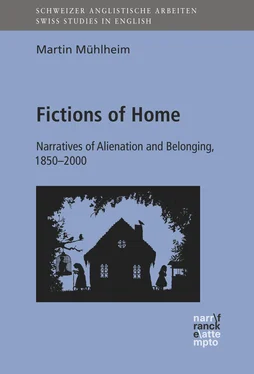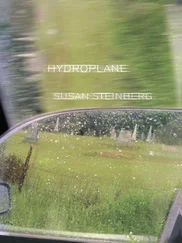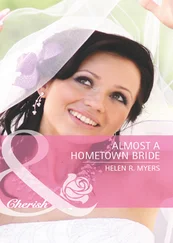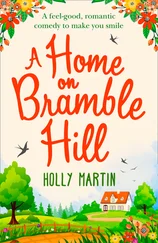LondonLondon’s residential neighborhoods exhibited a paradoxical symbiosis of the ruralrural and the urban: paradoxical because, despite their identification as rural and even antiurban, those suburbansuburbia villas were also specifically and indelibly metropolitan, just as the song “Home, Sweet Home” (1823) invoked a prelapsarian village abode but was written for a melodrama set and performed in London. (Sharon MarcusMarcus, Sharon 98–99)
A literary example of the privileged cultural position of the English countryside are the novels of Jane AustenAusten, Jane, where narrative complications tend to occur in more urban areas, such as seaside towns or LondonLondon itself, while the happy resolution takes the heroine to a (stately) home in the countryside (MorettiMoretti, Franco, Atlas of the European Novel 17–19).
Such ruralist ideals of EnglishnessEnglishness continued to gain in importance during the Edwardian period, and by the 1920s constituted one of the most prominent features in national selfself-definitions (Howkins 63). The overwhelming majority of writers between 1910 and 1940 thus regarded as the most representative part of the nation a “favoured enclave of the English countryside, usually presented in pastoralpastoral terms as a tranquil idyllidylls” (Baldick 305). In these pastoral visions of Englishness, the citycity tended to be construed as stimulating yet chaotic, filled with dirtdirt, criminals, and other ‘alien’ elements; indeed, “the discourses of urban investigation that developed in the 1840s argued that especially in LondonLondon, the city had overtaken and destroyed the home” (Sharon MarcusMarcus, Sharon 101). The metropolis, in short, was seen as undermining domestic ideals, while the country promised the timeless stabilitystability of a truly English home.135
Mrs. Dalloway , however, questions such ruralist prejudices from the outset by challenging the idea that ruralrural life is stable and idyllicidylls. WoolfWoolf, Virginia’s novel famously opens with Clarissa Dalloway stepping out of her LondonLondon home in Bond Street to go and buy flowers for a party that she intends to give in the evening. The scene she encounters immediately reminds Clarissa of a more rural past at Bourton, the stately country home of her youth:
What a lark! What a plunge! For so it had always seemed to her, when, with a little squeak of the hinges, which she could hear now, she had burst open the French windows and plunged at Bourton into the open air. How fresh, how calm, stiller than this of course, the air was in the early morning; like the flap of a wave; the kiss of a wave; chill and sharp and yet (for a girl of eighteen as she then was) solemn, feeling as she did, standing there at the open window, that something awful was about to happen […]. (3)
On the one hand, Clarissa immediately associates the freshness of the morning air in the citycity with life in the country, though the air there had been “stiller than this of course.” However, the ruralrural stillness at Bourton is not an unequivocally positive feature for Clarissa; it seems like the “kiss of a wave” and yet somehow solemn, as if “something awful was about to happen.” Moreover, later in the novel, we learn that Clarissa’s rural past is indeed associated with a very personal tragedytragedy, as her only sister was killed in the woods near Bourton by a falling tree (85). In contrast to common celebrations of rural EnglandEngland, there is thus, from the beginning, little sense in Mrs. Dalloway that homes in the country are necessarily more idyllicidylls or carefree than city abodes.
Revisiting the Country House
Importantly, to say that Mrs. Dalloway constitutes a critique of countryside ideals is not to deny any idyllicidylls dimension to Clarissa’s more ruralrural home at Bourton, as some pastoralpastoral scenes in WoolfWoolf, Virginia’s novel constitute a selfself-conscious reworking of the literary topos that Terry GiffordGifford, Terry has called “country-housecountry house Arcadias” (66). This is particularly evident in those scenes that focus on Clarissa’s intimate friendshipfriendship with Sally Seton, whom Clarissa continues to remember with glowing affection: “Had not that, after all, been lovelove?” (35). The loving relationship between the two women culminates, on the terrace at Bourton one star-lit night, in a glorious, passionate kiss:
Then came the most exquisite moment of her whole life passing a stone urn with flowers in it. Sally stopped; picked a flower; kissed her on the lips. The whole world might have turned upside down! The others disappeared; there she was alone with Sally. (38)
Such celebrations of same-sex affection have long been characteristic of pastoralpastoral literature; homoerotichomoeroticism desiredesire was, for instance, already a central concern in the Idylls of Theocritus (Holmes M. Morgan), and by the seventeenth century one of pastoral’s primary interests was its “participation in fields of sexual deviation” (Bredbeck 200). It is thus possible to read the lovelove scene between Sally and Clarissa not primarily as a moment of ruralrural authenticity, but instead as a selfself-consciously literary evocation of pastoral conventionsconventions.
However, whereas pastoralpastoral texts generally allow the same-sex lovers more than merely a brief moment of bliss, in Mrs. Dalloway Sally and Clarissa are immediately interrupted by their friend Peter Walsh, who asks whether they have been star-gazing: “It was shocking; it was horrible! [… Clarissa] felt his hostility; his jealousy; his determinationdetermination to break into their companionship” (39). The pastoral idyllidylls of homoerotichomoeroticism desiredesire is evoked only to be immediately shattered. It is thus fitting that shepherds – those staple ingredients of classical pastoral (GiffordGifford, Terry 15) – are only hinted at in the vaguest of terms in Mrs. Dalloway , when we learn that Clarissa, in her youth at Bourton, owned a “great shaggy dog which ran after sheep” (65). Similarly, though the name of Clarissa’s sister, Sylvia (Latin for ‘forest’ or ‘woods’), carries strong pastoral associations (AbelAbel, Elizabeth 111), her death – being killed by a falling tree – gives this generic link a decidedly non-idyllicidylls, black-humored twist.136 The homelyhomely ruralrural idyllidylls of Clarissa’s youth at Bourton is, in short, suffused with conflictconflict, selfself-consciously artificial, and fragile at best.
If the general literary traditiontradition of country-housecountry house Arcadias is reworked in Mrs. Dalloway to challenge common preconceptions about ruralrural innocenceinnocence and stabilitystability, the novel also more specifically refers to a novel by Jane AustenAusten, Jane to broaden the scope of the domestic novel beyond the confines of the heterosexualheterosexual courtship plotcourtship plot. As Raymond WilliamsWilliams, Raymond notes, Jane AustenAusten, Jane’s novels are centrally concerned with estates, incomes, and social position as indispensable elements of all the relationships that are formed (113). In order, Williams continues, to solve the ensuing conflictconflict between economic interest and moral value, Jane AustenAusten, Jane “guides her heroines, steadily, to the right marriages” (115); the transmission of wealthwealth is secured through a match between those characters whom the narrative has revealed as being most worthy of it. At the beginning of the heroine’s journey, her family home tends to be under threat; at the end, she is rewarded with an equally deserving husband and a new, far more exquisite home somewhere in rural EnglandEngland (MorettiMoretti, Franco, Atlas of the European Novel 18).
Читать дальше












